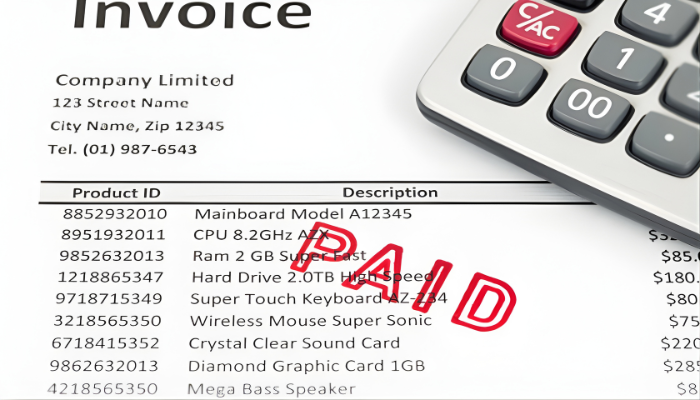
There is a lot to think about when selecting an invoice factoring company. The right company will partner with you to boost your business growth and act as a financial advisor with your company’s best interest in mind.
There are a lot of factoring companies out there, so how do you find the right one? What should you be looking for?
Below, we first explain how a factoring company works then offer some guidelines of what qualities and services to look for to help you make the best decision for your business.
Factoring 101: Factoring Company Operations
A factoring company buys your invoices at a discount, advances you a portion of the total value, and then collects the owed amount from your customers. Your factoring eligibility is largely based on what industry you’re in, and the cost of service is dependent on the creditworthiness of your customers and the state of the invoices.
The factor takes into account the number of customers you have and your sales volume. If your client list is short or you have a low sales volume, the company may not approve your application or charge higher fees to cover their financial risk.
Once the factor approves your application, you receive an advance of 70% to 90% of the face value of your invoices immediately. The factor then takes over collections. Once the client pays, you receive the balance of your invoice minus a factoring fee, also called a discount rate or purchase price, of 1% to 5%, which is how factoring companies make their money.
What happens if a client doesn’t pay the invoice? That depends on whether you are using recourse factoring or non-recourse factoring.
The overall process is simple, but the main differences between factoring companies can be found in process structure, factoring fees, and communication practices.
How to Select an Invoice Factoring Company
Before you sign a contract with a factoring company, you would be wise to do your due diligence. Ask for referrals, look at reviews, and contact former and current clients of the company before making a decision.
If you want to factor online, ensure the factoring company's systems are compatible with your accounting or business software. Most factors can work with Freshbooks, QuickBooks, Xero, and other common accounting and business software.
Specialization and Operations
First, determine what type of company you want to work with. Some factoring companies only do invoice factoring, while others also provide other financing services. Some banks and small lenders offer factoring services. Some factoring companies specialize in specific industries.
It may not matter which type of company you go with, but it helps if your chosen company is familiar with your industry and business model.
Once you have a list of possible factors, set up a meeting to discuss your situation and specific needs. Here are some questions in that meeting:
- What size company do you usually work with?
- What industries (if any) do you specialize in?
- Does a business need to meet specific criteria to qualify for factoring?
- Is there a maximum or minimum number of invoices you will accept?
- How quickly can you set up an account?
- How quickly will I receive funds?
- What happens if a client fails to pay an invoice?
The answers will help you determine whether the factor meets your business’ needs.
Type of Fees and Services
Next, it is important that you completely understand the fees and types of services the factor offers.
Questions to ask:
- How much is the factoring fee or discount rate?
- What percentage of each invoice will I receive as the initial advance?
- Do you require a personal guarantee?
- What documentation do you require, such as tax returns or financial statements?
Besides recourse vs. non-recourse factoring, be sure to ask about fee structure. Factors use either a flat fee structure or a variable rate structure.
A variable rate structure, sometimes called a tiered fee structure, allows the factor to charge a different fee according to the age of the invoice. You pay a small fee as long as the invoice is outstanding.
The longer the invoice goes unpaid, the more fees you accrue over time. Variable rate structures can be complicated to calculate and depend on your business profile and the risk of your accounts.
A flat fee structure keeps the rate the same, no matter how overdue the invoice becomes. The fee can be higher than a variable rate fee, at least at the beginning, but might be the better choice if you don’t invoice often or if you have clients that pay consistently before the net term.
Hidden Fees
Look out for hidden costs and fees. If you don’t understand everything in the factor’s proposed contract, ask a business attorney familiar with factoring to go over it. Fees a factor may charge include:
- Termination fees, which can range from 3% to 10% on a long-term contract
- Monthly minimum fees that commit you to factoring a certain number of invoices monthly and pay an additional fee for falling below than number
- Maintenance fees to keep your account open and current with the factor
- Due diligence fees to pay the factor for verifying the background of your clients, which can cost from a few hundred to a few thousand dollars.
Other potential fees include:
- Lockbox or service fees from $50 to $500 monthly
- Account setup fees
- Unused line fees applied to the average unused portion of your overall factoring line per month
- Annual renewal fee
- Overdue or collection fees if the factor must take action to collect on an invoice
- ACH transaction and wire transfer fees
Double-check all rates, including the minimum annual commission, customer limit, and other numbers as you read through any agreement.
Communication Practices
Finally, you should look for a factor that is open and honest with you. A reliable factor should be transparent about their factoring process and be able to clearly explain every step to you. Some factors may, after a conversation about your business needs, decide that invoice factoring may not be the best fit and point you toward a different financing method. This is the honesty you should look for.
A good factor will show interest in your company and make an effort to understand both your business structure and your industry. The right partner will treat your company's growth and success as a priority.
In Summary
Deciding to factor your invoices with a factoring company is a big decision. You want to put your trust in a financial partner that really cares about your business.
When you are searching for a factor to work with, determine what type of company you want to work with. Ask about their fee structure, and review any agreements for hidden fees. Finally, look for a factor that shows interest in your business and is easy to communicate with. Once you find the right factor, you’ll be glad you did all that work!
Put Factor Funding on Your Short List
If you are looking for a factoring company that cares about your business, you can do no better than Factor Funding. You can talk to us with zero obligation. We are happy to answer all your questions and provide complete transparency into our business operations.

















